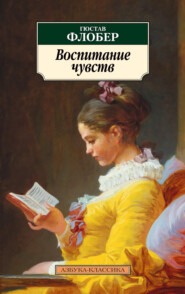По всем вопросам обращайтесь на: info@litportal.ru
(©) 2003-2024.
✖
Bouvard and Pécuchet, part 1
Настройки чтения
Размер шрифта
Высота строк
Поля
He got the notion into his head of cultivating the poppy for the purpose of getting opium from it, and above all the milk-vetch, which he intended to sell under the name of "family coffee."
Finally, in order to fatten his oxen the more quickly, he blooded them for an entire fortnight.
He killed none of his pigs, and gorged them with salted oats. The pigsty soon became too narrow. The animals obstructed the farmyard, broke down the fences, and went gnawing at everything.
In the hot weather twenty-five sheep began to get spoiled, and shortly afterwards died. The same week three bulls perished owing to Bouvard's blood-lettings.
In order to destroy the maggots, he thought of shutting up the fowls in a hencoop on rollers, which two men had to push along behind the plough – a thing which had only the effect of breaking the claws of the fowls.
He manufactured beer with germander-leaves, and gave it to the harvesters as cider. The children cried, the women moaned, and the men raged. They all threatened to go, and Bouvard gave way to them.
However, to convince them of the harmlessness of his beverage, he swallowed several bottles of it in their presence; then he got cramps, but concealed his pains under a playful exterior. He even got the mixture sent to his own residence. He drank some of it with Pécuchet in the evening, and both of them tried to persuade themselves that it was good. Besides, it was necessary not to let it go to waste. Bouvard's colic having got worse, Germaine went for the doctor.
He was a grave-looking man, with a round forehead, and he began by frightening his patient. He thought the gentleman's attack of cholerine must be connected with the beer which people were talking about in the country. He desired to know what it was composed of, and found fault with it in scientific terms with shruggings of the shoulders. Pécuchet, who had supplied the recipe for it, was mortified.
In spite of pernicious limings, stinted redressings, and unseasonable weedings, Bouvard had in front of him, in the following year, a splendid crop of wheat. He thought of drying it by fermentation, in the Dutch fashion, on the Clap-Meyer system: that is to say, he got it thrown down all of a heap and piled up in stacks, which would be overturned as soon as the damp escaped from them, and then exposed to the open air – after which Bouvard went off without the least uneasiness.
Next day, while they were at dinner, they heard under the beech trees the beating of a drum. Germaine ran out to know what was the matter, but the man was by this time some distance away. Almost at the same moment the church-bell rang violently.
Bouvard and Pécuchet felt alarmed, and, impatient to learn what had happened, they rushed bareheaded along the Chavignolles road.
An old woman passed them. She knew nothing about it. They stopped a little boy, who replied:
"I believe it's a fire!"
And the drum continued beating and the bell ringing more loudly than before. At length they reached the nearest houses in the village. The grocer, some yards away, exclaimed:
"The fire is at your place!"
Pécuchet stepped out in double-quick time; and he said to Bouvard, who trotted by his side with equal speed:
"One, two! one, two!" – counting his steps regularly, like the chasseurs of Vincennes.
The road which they took was a continuously uphill one; the sloping ground hid the horizon from their view. They reached a height close to La Butte, and at a single glance the disaster was revealed to them.
All the stacks, here and there, were flaming like volcanoes in the midst of the plain, stripped bare in the evening stillness. Around the biggest of them there were about three hundred persons, perhaps; and under the command of M. Foureau, the mayor, in a tricoloured scarf, youngsters, with poles and crooks, were dragging down the straw from the top in order to save the rest of it.
Bouvard, in his eagerness, was near knocking down Madame Bordin, who happened to be there. Then, seeing one of his servant-boys, he loaded him with insults for not having given him warning. The servant-boy, on the contrary, through excess of zeal, had at first rushed to the house, then to the church, next to where Monsieur himself was staying, and had returned by the other road.
Bouvard lost his head. His entire household gathered round him, all talking together, and he forbade them to knock down the stacks, begged of them to give him some help, called for water, and asked where were the firemen.
"We've got to get them first!" exclaimed the mayor.
"That's your fault!" replied Bouvard.
He flew into a passion, and made use of improper language, and everyone wondered at the patience of M. Foureau, who, all the same, was a surly individual, as might be seen from his big lips and bulldog jaw.
The heat of the stacks became so great that nobody could come close to them any longer. Under the devouring flames the straw writhed with a crackling sound, and the grains of corn lashed one's face as if they were buckshot. Then the stack fell in a huge burning pile to the ground, and a shower of sparks flew out of it, while fiery waves floated above the red mass, which presented in its alternations of colour parts rosy as vermilion and others like clotted blood. The night had come, the wind was swelling; from time to time, a flake of fire passed across the black sky.
Bouvard viewed the conflagration with tears in his eyes, which were veiled by his moist lids, and his whole face was swollen with grief. Madame Bordin, while playing with the fringes of her green shawl, called him "Poor Monsieur!" and tried to console him. Since nothing could be done, he ought to do himself justice.
Pécuchet did not weep. Very pale, or rather livid, with open mouth, and hair stuck together with cold sweat, he stood apart, brooding. But the curé who had suddenly arrived on the scene, murmured, in a wheedling tone:
"Ah! really, what a misfortune! It is very annoying. Be sure that I enter into your feelings."
The others did not affect any regret. They chatted and smiled, with hands spread out before the flame. An old man picked out burning straws to light his pipe with; and one blackguard cried out that it was very funny.
"Yes, 'tis nice fun!" retorted Bouvard, who had just overheard him.
The fire abated, the burning piles subsided, and an hour later only ashes remained, making round, black marks on the plain. Then all withdrew.
Madame Bordin and the Abbé Jeufroy led MM. Bouvard and Pécuchet back to their abode.
On the way the widow addressed very polite reproaches to her neighbour on his unsociableness, and the ecclesiastic expressed his great surprise at not having up to the present known such a distinguished parishioner of his.
When they were alone together, they inquired into the cause of the conflagration, and, in place of recognising, like the rest of the world, that the moist straw had taken fire of its own accord, they suspected that it was a case of revenge. It proceeded, no doubt, from Maître Gouy, or perhaps from the mole-catcher. Six months before Bouvard had refused to accept his services, and even maintained, before a circle of listeners, that his trade was a baneful one, and that the government ought to prohibit it. Since that time the man prowled about the locality. He wore his beard full-grown, and appeared to them frightful-looking, especially in the evening, when he presented himself outside the farmyard, shaking his long pole garnished with hanging moles.
The damage done was considerable, and in order to know their exact position, Pécuchet for eight days worked at Bouvard's books, which he pronounced to be "a veritable labyrinth." After he had compared the day-book, the correspondence, and the ledger covered with pencil-notes and discharges, he realised the truth: no goods to sell, no funds to get in, and in the cash-box zero. The capital showed a deficit of thirty-three thousand francs.
Bouvard would not believe it, and more than twenty times they went over the accounts. They always arrived at the same conclusion. Two years more of such farming, and their fortune would be spent on it! The only remedy was to sell out.
To do that, it was necessary to consult a notary. The step was a disagreeable one: Pécuchet took it on himself.
In M. Marescot's opinion, it was better not to put up any posters. He would speak about the farm to respectable clients, and would let them make proposals.
"Very well," said Bouvard, "we have time before us." He intended to get a tenant; then they would see. "We shall not be more unlucky than before; only now we are forced to practise economy!"
Pécuchet was disgusted with gardening, and a few days later he remarked:
"We ought to give ourselves up exclusively to tree culture – not for pleasure, but as a speculation. A pear which is the product of three soils is sometimes sold in the capital for five or six francs. Gardeners make out of apricots twenty-five thousand livres in the year! At St. Petersburg, during the winter, grapes are sold at a napoleon per grape. It is a beautiful industry, you must admit! And what does it cost? Attention, manuring, and a fresh touch of the pruning-knife."
It excited Bouvard's imagination so much that they sought immediately in their books for a nomenclature for purchasable plants, and, having selected names which appeared to them wonderful, they applied to a nurseryman from Falaise, who busied himself in supplying them with three hundred stalks for which he had not found a sale. They got a lock-smith for the props, an iron-worker for the fasteners, and a carpenter for the rests. The forms of the trees were designed beforehand. Pieces of lath on the wall represented candelabra. Two posts at the ends of the plat-bands supported steel threads in a horizontal position; and in the orchard, hoops indicated the structure of vases, cone-shaped switches that of pyramids, so well that, in arriving in the midst of them, you imagined you saw pieces of some unknown machinery or the framework of a pyrotechnic apparatus.
The holes having been dug, they cut the ends of all the roots, good or bad, and buried them in a compost. Six months later the plants were dead. Fresh orders to the nurseryman, and fresh plantings in still deeper holes. But the rain softening the soil, the grafts buried themselves in the ground of their own accord, and the trees sprouted out.
When spring had come, Pécuchet set about the pruning of pear trees. He did not cut down the shoots, spared the superfluous side branches, and, persisting in trying to lay the "duchesses" out in a square when they ought to go in a string on one side, he broke them or tore them down invariably. As for the peach trees, he got mixed up with over-mother branches, under-mother branches, and second-under-mother branches. The empty and the full always presented themselves when they were not wanted, and it was impossible to obtain on an espalier a perfect rectangle, with six branches to the right and six to the left, not including the two principal ones, the whole forming a fine bit of herringbone work.
Bouvard tried to manage the apricot trees, but they rebelled. He lowered their stems nearly to a level with the ground; none of them shot up again. The cherry trees, in which he had made notches, produced gum.
At first, they cut very long, which destroyed the principal buds, and then very short, which led to excessive branching; and they often hesitated, not knowing how to distinguish between buds of trees and buds of flowers. They were delighted to have flowers, but when they recognised their mistake, they tore off three fourths of them to strengthen the remainder.
Incessantly they kept talking about "sap" and "cambium," "paling up," "breaking down," and "blinding of an eye." In the middle of their dining-room they had in a frame the list of their young growths, as if they were pupils, with a number which was repeated in the garden on a little piece of wood, at the foot of the tree. Out of bed at dawn, they kept working till nightfall with their twigs carried in their belts. In the cold mornings of spring, Bouvard wore his knitted vest under his blouse, and Pécuchet his old frock-coat under his packcloth wrapper; and the people passing by the open fence heard them coughing in the damp atmosphere.
Sometimes Pécuchet drew forth his manual from his pocket, and he studied a paragraph of it standing up with his grafting-tool near him in the attitude of the gardener who decorated the frontispiece of the book. This resemblance flattered him exceedingly, and made him entertain more esteem for the author.
Bouvard was continually perched on a high ladder before the pyramids. One day he was seized with dizziness, and, not daring to come down farther, he called on Pécuchet to come to his aid.
At length pears made their appearance, and there were plums in the orchard. Then they made use of all the devices which had been recommended to them against the birds. But the bits of glass made dazzling reflections, the clapper of the wind-mill woke them during the night, and the sparrows perched on the lay figure. They made a second, and even a third, varying the dress, but without any useful result.

















